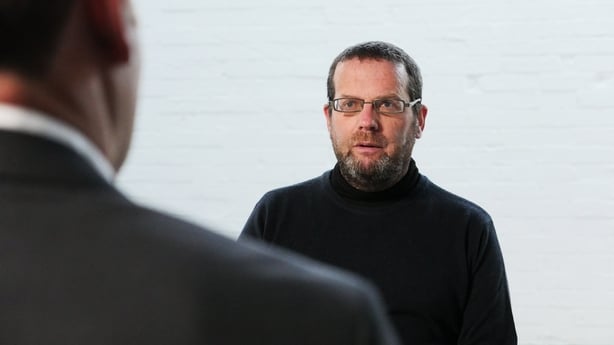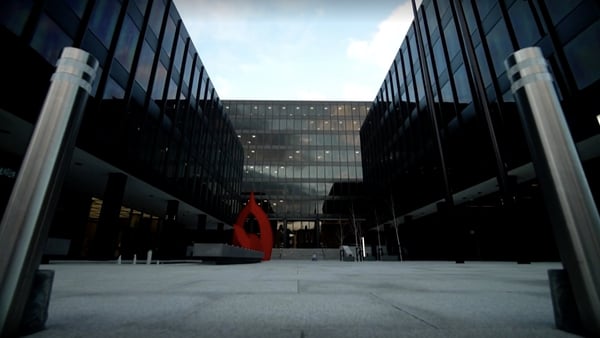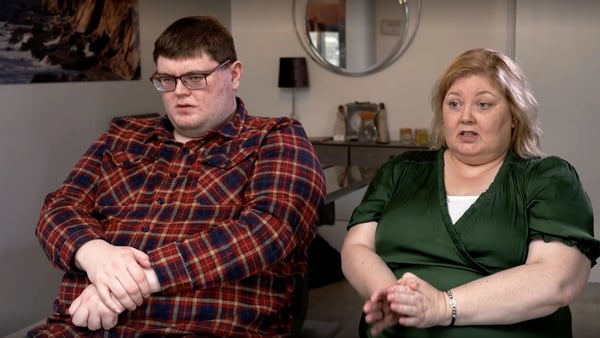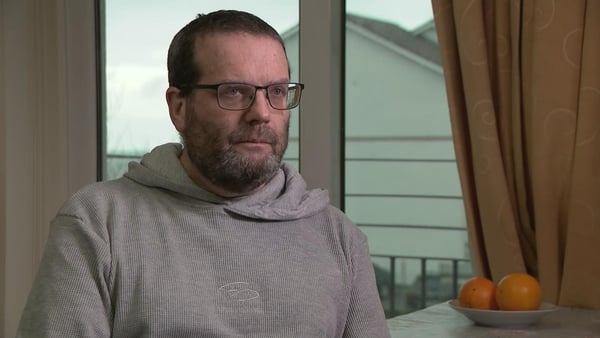An expert review commissioned after a whistleblower raised concerns about the building of dossiers on autistic children said that the Department of Health gathered information that was "very personal", "sensitive" and at times "distressing", RTÉ Investigates has learned.
The senior counsel report, which was commissioned in 2020 following a protected disclosure by whistleblower Shane Corr, confirms that the Department used spreadsheets to store information regarding dormant legal cases involving children with special educational needs.
RTÉ Investigates spoke to the legal representatives of some of the families involved in the dormant cases. They say that neither they nor their clients were aware that updates of personal information were being sought or stored by the Department.
One parent said she felt "totally betrayed, beyond belief" on learning her child's information was being used in this way.
Excerpts of the report seen by RTÉ Investigates also reveal that the senior counsel had not seen key legal advice relating to whether the HSE could provide information to the Department of Health without the consent of parents.
In a statement to RTÉ Investigates, the Department of Health last week said that the senior counsel who had reviewed the practice found it to be "entirely lawful, proper and appropriate".
However, in his report, the senior counsel notes that he had not seen any legal advice that may have been furnished to officials in the Department after a medically qualified person in the HSE raised concerns in 2017.
According to the report, this medically qualified person queried whether consent had been sought from a person or their parents for the release of clinical information.
Read more:
The whistleblower exposing the Department of Health's secret dossiers
Department of Health built secret dossiers on children with autism
The senior counsel notes that the Department had sought advice in relation to whether the release of information by the HSE to the Department was permissible under data protection legislation, and as to whether any further legislation could be relied upon to "underpin/protect" the release of such information.
"I have not seen the subsequent legal advice furnished consequent upon the request for legal advice in the e-mail dated 27 June 2017," the senior counsel wrote in his report.
"Sensitive" and "distressing" information
The senior counsel's review confirmed the existence of spreadsheets used to store information on dormant cases involving children with special educational needs. The report states that he reviewed "a large sample of the spreadsheets concerned".
Watch on RTÉ Player:
RTÉ Investigates: The Department, The Data & The Disclosure
"I agree with the Discloser," he wrote, referring to Mr Corr, "that some of the information contained in the spreadsheets is sensitive and, in some cases, refers to what are distressing circumstances."
The report said such sensitive and personal information is often found and summarised on legal files. And he said it was correct for State parties to cooperate and work out if their costs could be shared, as had happened between the Department of Health and the Department of Education.
The senior counsel said that, from Mr Corr’s perspective, the material may have seemed distressing and sensitive, but he saw no wrongdoing in keeping material like this in spreadsheets.

Sought out, followed up, hunted down
The report also deals with an email circulated in the Department in the summer of 2017 that celebrated the successful collection of updates on the dormant cases.
A senior civil servant who wrote the email said "we are still chasing up HSE on some details", and went on to thank a staff member "who sought out, followed up, hunted down, chased up, followed up again and obtained the required updates from HSE units around the country, did all the inputting at our end and assisted… closely in analysing each case and developing [Department of Health] strategy proposals."
The senior counsel’s report said this was "enthusiastic recognition" of the work carried out by one official, and did not raise matters of concern.
Concerns by clinician
In 2017, a medical qualified person employed by the HSE was asked by a Department official to supply information on one of the plaintiffs, a child with autism who was involved in a dormant legal action.
This request looked for service updates and details of the family’s satisfaction with them.
It said the reason given to this clinician for the request was "whether it was advisable for [the Department] to initiate contact with the person’s parents against the backdrop of long dormant legal proceedings".
In this case, the clinician initially raised concerns as to whether this was legal and if the parents had consented.
The senior counsel’s report said the Department official who made the request shared an understanding that the practice was legal under the Data Protection Act that was in place at the time, which allowed information to be exchanged for the purposes of defending litigation.
The clinician was asked not to discuss the request with the family.
The report on the protected disclosure said there was a confusing trail of emails between the Department and the clinician where the request was withdrawn for other reasons.
But, the next day, the clinician went on to send the report on the child to the Department.
However, despite the request being withdrawn, the Department subsequently processed the information and inputted it into the spreadsheets.

RTÉ Investigates has been able to establish that, in the case in question, information gleaned from the clinician’s report was used to inform the shared spreadsheets along with other material gathered from community health and school records on the same child.
Two years later, in 2019, updates on this information were again sought on the individual from the HSE.
Court records indicate that there had been no filings on this case since February 2007.
The senior counsel’s report said legal advice was sought arising from the clinician’s questions, and this was flagged as "not urgent".
The advice was also intended to cover potentially 20 other dormant special educational need cases, for which updates had been requested from the HSE office.
The advice that was sought asked whether the practice was legally permissible or whether there were any other laws the transfer could be covered under.
The report said it is not known what the answer was.
Read more:
Why Dept of Health secret dossiers are breach of trust for parents
The senior counsel said: "I have not seen the subsequent legal advice…. (and) in the circumstances it is recommended that the Department should confirm whether subsequent legal advice issued".
He said the Department should confirm whether the legal advice addressed the matters of consent raised in the clinician’s email.
Long dormant cases
RTÉ Investigates has also reviewed 18 other files that were kept by the Department on dormant cases in recent years. In these 18 cases, the last High Court filings were prior to May 2007.
In a further four cases, there had been no activity after 2010.
On the privacy issue, the Data Protection Commissioner announced this week that it had appointed authorised officers to conduct a statutory inquiry into the practices of the Department of Health.
In statements to RTÉ Investigates prior to last week’s broadcast, the Department of Health has said the senior counsel’s report had found "the information sharing referred to in the article has been found by an independent, expert review by Senior Counsel to be entirely lawful, proper and appropriate."
And it said that "State parties, including the Department of Health are involved in litigation from time to time. In the public interest, such litigation against the State is managed in consultation and collaboration with relevant State parties to the litigation and the State’s legal advisors."
It added: "Where the State is a defendant or notice party to litigation, and where the case has not been formally concluded, such as through a judgment of the court, withdrawal by the plaintiff of the case or through agreed resolution, the relevant State parties must defend those proceedings."






